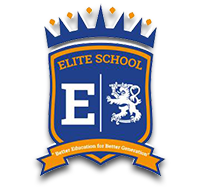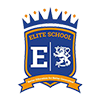Physical and health education
I. Course description and aims
MYP physical and health education aims to empower students to understand and appreciate the value of being physically active while developing the motivation for making healthy and informed life choices. To this end, physical and health education courses foster the development of knowledge, skills and attitudes contributing to a balanced and healthy lifestyle.
Students engaged in physical and health education will explore a variety of concepts that help foster an awareness of physical development and health perspectives, as well as positive social interaction. Physical activity and health are of central importance to human identity and global communities, creating meaningful connections among people, nations, cultures and the natural world.
Through physical and health education, students learn to appreciate and respect the ideas of others, and develop effective collaboration and communication skills. This subject area also offers many opportunities to build positive interpersonal relationships that can help students to develop a sense of social responsibility and intercultural understanding.
The aims of MYP physical and health education are to encourage and enable students to:
- use inquiry to explore physical and health education concepts
- participate effectively in a variety of contexts
- understand the value of physical activity
- achieve and maintain a healthy lifestyle
- collaborate and communicate effectively
- build positive relationships and demonstrate social responsibility
- reflect on their learning experiences.
II. Curriculum overview
The MYP promotes sustained inquiry in physical and health education by developing conceptual understanding within global contexts.
Key concepts such as change, communicationand relationships broadly frame the MYP curriculum.
Related concepts promote deeper learning grounded in specific disciplines. Examples of related concepts in MYP physical and health education include energy, balance and refnement.
Students explore key and related concepts through MYP global contexts.
- Identities and relationships
- Orientation in space and time
- Personal and cultural expression
- Scientific and technical innovation
- Globalization and sustainability
- Fairness and development
The MYP curriculum framework offers schools flexibility to determine engaging, relevant, challenging and significant content that meets local and national curriculum requirements. This inquiry-based curriculum explores factual, conceptual and debatable questions in the study of physical and health education.
The MYP requires at least 50 hours of teaching time for each subject area in each year of the programme. For students participating in MYP eAssessment, the IB recommends 70 hours of guided learning each year in MYP years 4 and 5.
III. Assessment Criteria
Each physical and health education objective corresponds to one of four equally weighted assessment criteria. Each criterion has eight possible achievement levels (1–8), divided into four bands with unique descriptors that teachers use to make judgments about students’ work.
Criterion A: Knowing and understanding
Students develop knowledge and understanding about health and physical activity in order to identify and solve problems.
Criterion B: Planning for performance
Students through inquiry design, analyse, evaluate and perform a plan in order to improve performance in physical and health education.
Criterion C: Applying and performing
Students develop and apply practical skills, techniques, strategies and movement concepts through their participation in a variety of physical activities.
Criterion D: Refecting and improving performance
Students enhance their personal and social development, set goals, take responsible action and refect on their performance and the performance of others.

